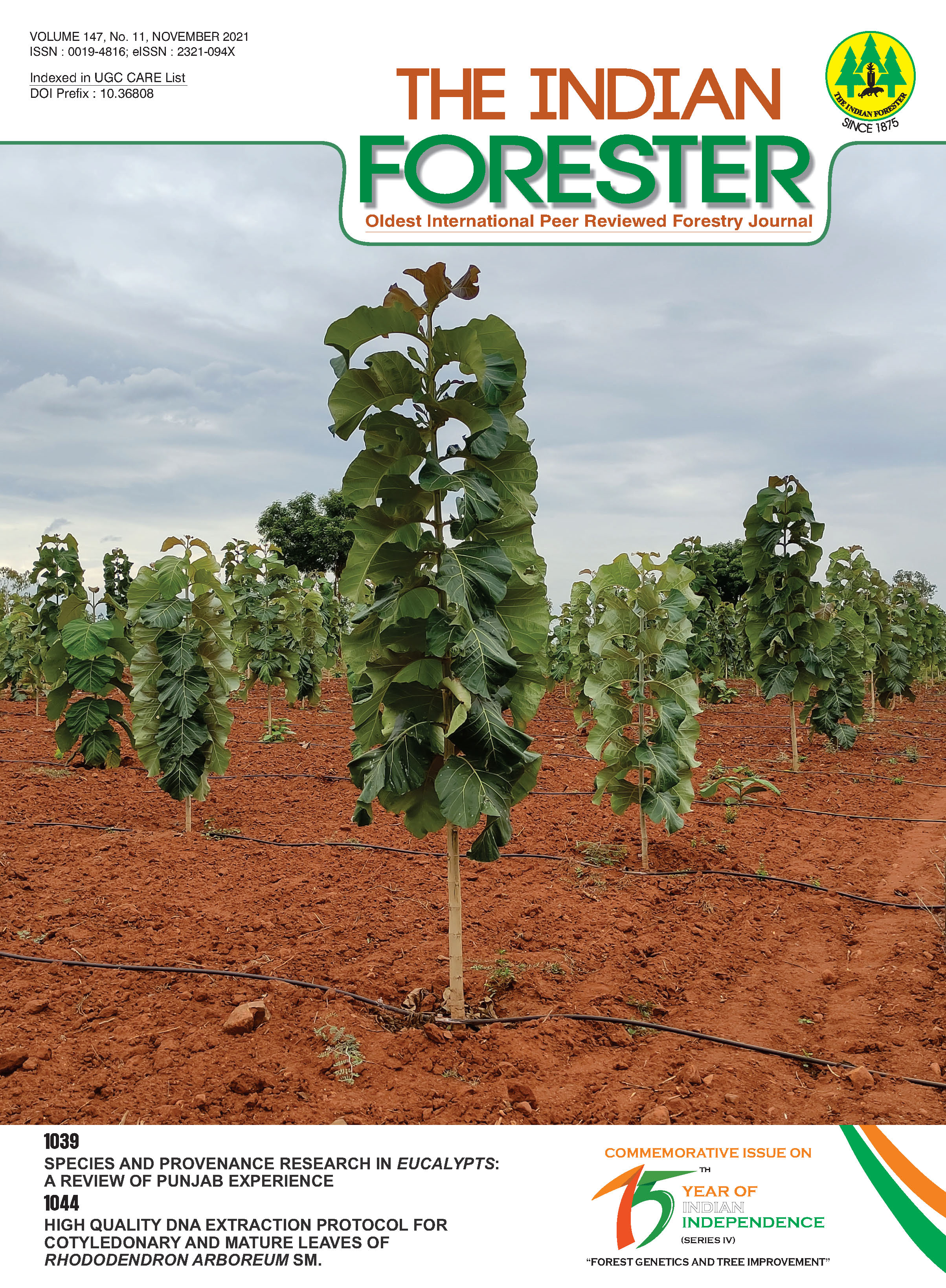Mini-Clonal Technology-An Innovative Mass Multiplication Technology for Tree species
DOI:
https://doi.org/10.36808/if/2021/v147i11/152043Keywords:
Tree Species, Mass Multiplication, Mini Clonal Technology.Abstract
The growing importance on promotion of plantation and agroforestry in India demands production of quality planting materials to satisfy the demands of tree growing farmers and wood based industries. The National Forest and Agroforestry policies also prioritized ensuring quality seedling production for successful establishment of forestry and agroforestry plantations. As of now, most plantation activities in the country are carried out through seed based seedling production barring few exceptions which exhibited wide variations in growth, yield, productivity and adoptability. Under such circumstances, The Forest College and Research Institute (TNAU) has developed species specific mini clonal technology for wide range of pulpwood, plywood and timber species viz., Eucalyptus, Casuarina, Melia, Teak, African Mahagony, Toon and Kadam. This innovative mass multiplication technology exhibits greater potential of adoption across regions towards mass multiplication of wide range of species and to ensure quality seedling production as envisaged in National Agroforestry policy. The rapid multiplication coupled with increased rooting efficiency in a short duration and elimination of epigenetic variation attracts this technology as a most promising in forestry and agroforestry plantation development program.References
Campinhos E. and Ikemori Y.K. (1983). Mass Production of Eucalyptus spp. by rooting cuttings. Silvicultura, 8(32): 770-775.
GOI (1988). National Forest Policy. Government Press, New Delhi.
Pathiban K.T. (2017). Mini Clonal Technology of Tree Crops. In:, Forestry Technologies – A complete value chain approach (Eds Parthiban K.T. and R. Seenivasan), Scientific Publishers, Jodhpur. ISBN 978-93-86102-60-7pp: 103-110.
Sharma S.K., Arya I.D., Tewari S., Arya S. and Yadava M.P.S. (2018). Clonal plantations play a key role to increase agroforestry production enriching farm communities: Indian experiences. Forest Res Eng Int J., 2(6): 306-311.
Downloads
Downloads
Published
How to Cite
Issue
Section
License
Unless otherwise stated, copyright or similar rights in all materials presented on the site, including graphical images, are owned by Indian Forester.





